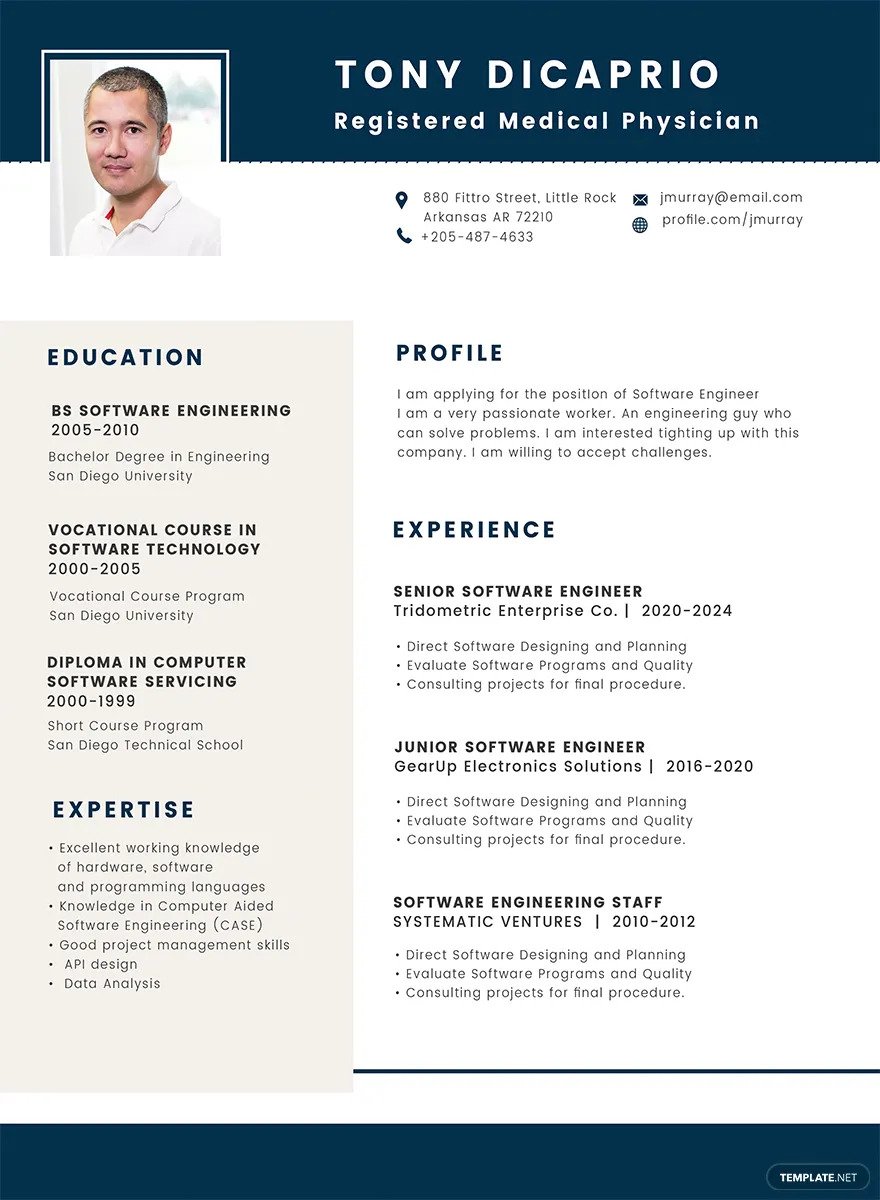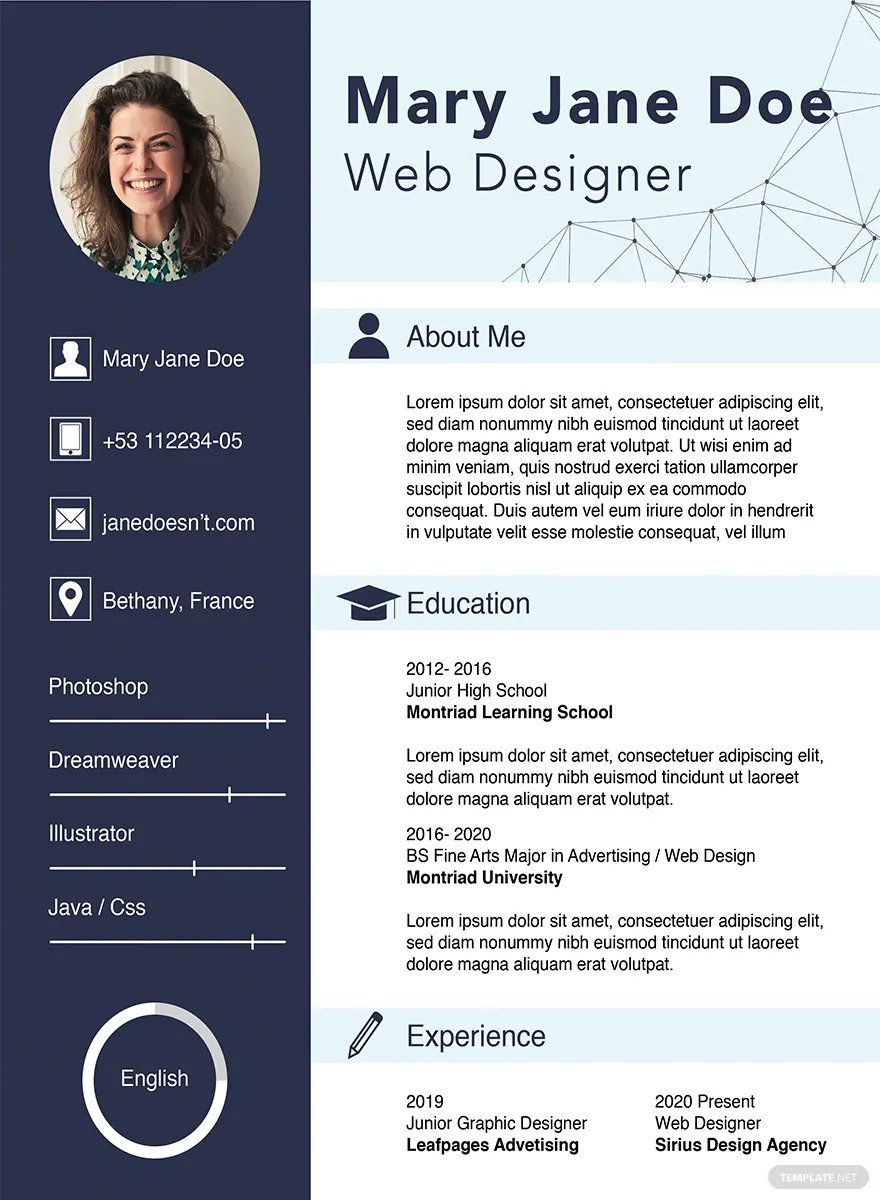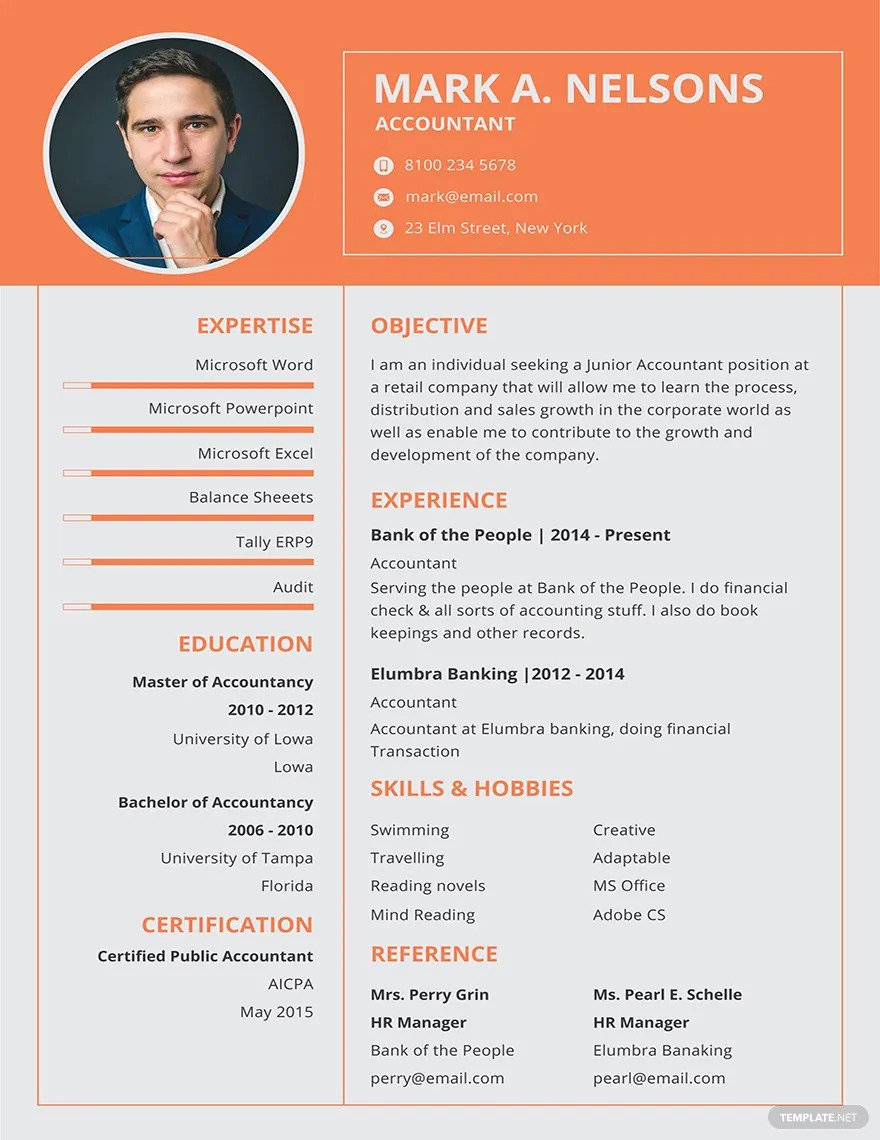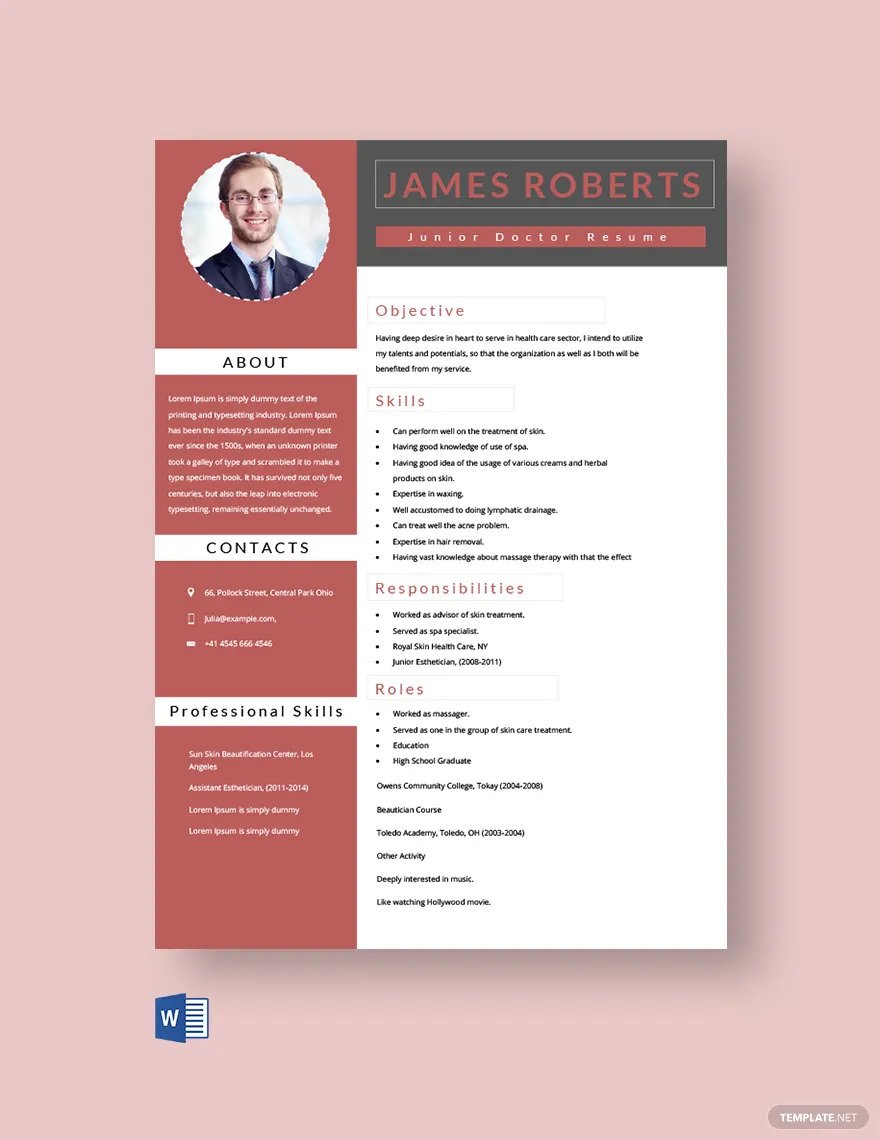Table of Contents
Resumes
Resumes are important to someone’s career and employment journey. This document testifies their academic background and professional experiences and itemizes their skills, values, and qualifications.
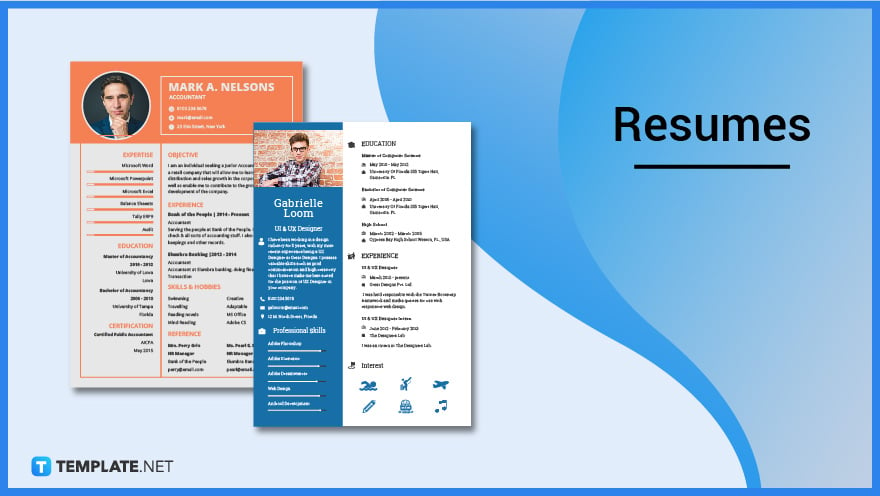
Download the Free Resume Article in PDF
File Format:
Resume Definition & Meaning
A resume is a brief one-page document of your personal and professional experiences, background, and relevant career information.
A resume is a shorter version of a CV or curriculum vitae and is often accompanied by a cover letter to efficiently show off yourself at once.
What Is a Resume?
A resume is a tailored-fit document to the job that you want. This document shows your educational background, professional experiences, skills, career objectives, contact information, and other relevant career information that could help persuade the company to hire you. A well-thought resume must be a one-page document that houses all the necessary details that companies need, not too wordy, and pleasant to the eyes.
10 Types of Resumes
Job
Job resumes are documents needed for job application that lists your experiences, educational attainment, and qualifications. This type of resume works for almost all jobs and professions in the world. A job resume is a buzz-free option if you wish to create a quality employment document.
Student
Student resumes come in handy for internships and fresh graduate job applications. This type of resume is perfect for students who do not know where and how to start. Student resume is consists of educational background, extracurricular activities, skills, and etc.
College
A college resume is a document detailing your educational background, skills, and qualities. This type of resume comes in handy for students who are fresh out of college, pursuing a profession in college, or those who wish to ready their employment documents. A college resume is a buzz-free type for everyone.
Internship
Internship resumes are used to apply for on-the-job training for college or university students, fresh graduates, and those who want to experience internships. Students or individuals without job experience may use this type of resume to higher the chance of getting hired. Internship resume must explicitly say your student life, educational background, and other relevant internship information.

Art
An art resume is an essential employment document used by artists and other art-based professionals. This type of resume comes in handy, especially for up-and-coming artists. This resume must contain your experiences, skills, and portfolio.
Fresher
Fresher resumes are resumes utilized by fresh graduates seeking work experience. This type of resume eases the job application process, and help in securing that job. Fresher Resume is an easy to make resume type for those who are starting their career journey.
Experienced
With resumes, no one is exempted. An experienced resume is a kind of resume used by experts and well-versed professionals in a certain field or industry. This type of resume helps professional outline their career information and experiences.
School
School is where learning starts. School resumes are used by students for research, internship, or any academic-related needs. This type of resume comes in handy for students, teachers, teaching professionals, and non-teaching professionals.
Teacher
A teacher resume is used by teaching professionals to get into a teaching job. This type of resume is important to ensure that the teacher is equipped with the needed knowledge and skills for a certain job. Teacher resume is easy to create and hassle-free to comprehend.
Doctor
Even white-colored job like doctors needs a good resume. A doctor’s resume is created by physicians to detail their experience, educational attainment, skills, and other qualifications. A doctor’s resume comes in handy for job applications, professional talks, and other opportunities for doctors.
Resume Uses, Purpose, Importance
A resume plays a significant role in your career journey. The goal of writing a resume is to exhibit all your experiences, background, skills, and knowledge. Here are a few other uses, purposes, and importance of a resume:
Application
Resumes are used to present your qualification for a certain role. This document must contain your best experiences, qualities, skills, and background.
Introduction
Resumes act as your introduction to the company you are applying to. The goal is to score an interview or accelerate to the next level of the application process. Let your resume do the talking for you.
Qualifications
A resume is a document for showing off all your accomplishments, experiences, and qualities. This document helps persuade employers by listing all your qualifications for the position.
Setting a good impression
Resumes set an impression. A thoughtfully made resume shouts pride, eagerness, and trust. This document set your intention for the company.
Asset
A resume proves that you can be an asset to the company. This document helps persuades employers to hire you because of your asset-worthy abilities.
What’s in a Resume? Parts?
Name
Among the most important parts of a resume is your name. Your name must be the first thing employers will see when they read your resume. The name can be placed in the upper part of your document for utmost visibility.
Profile
Apart from your name, personal details such as your contact number, email address, home address, age, and sometimes social media accounts are important for employers.
Resume Summary
A resume summary is a summarized paragraph of all the contents you have on your resume. This part explicitly indicates your objective in applying.
Education
A resume must include your educational attainment, awards, and distinctions. This is important, especially for fresh graduates without work experience yet, in order to aid employers in their background and skills.
Experience
Your professional experience is a niche. This part of your resume contains all the work experiences you had, what you did, and for how long. For some positions, experience is a non-negotiable qualification.
Skills
Skills are your hard-earned edge. Among the useful skills that you must include in your resume are your problem-solving skills, critical thinking skills, communication, skills, etc.
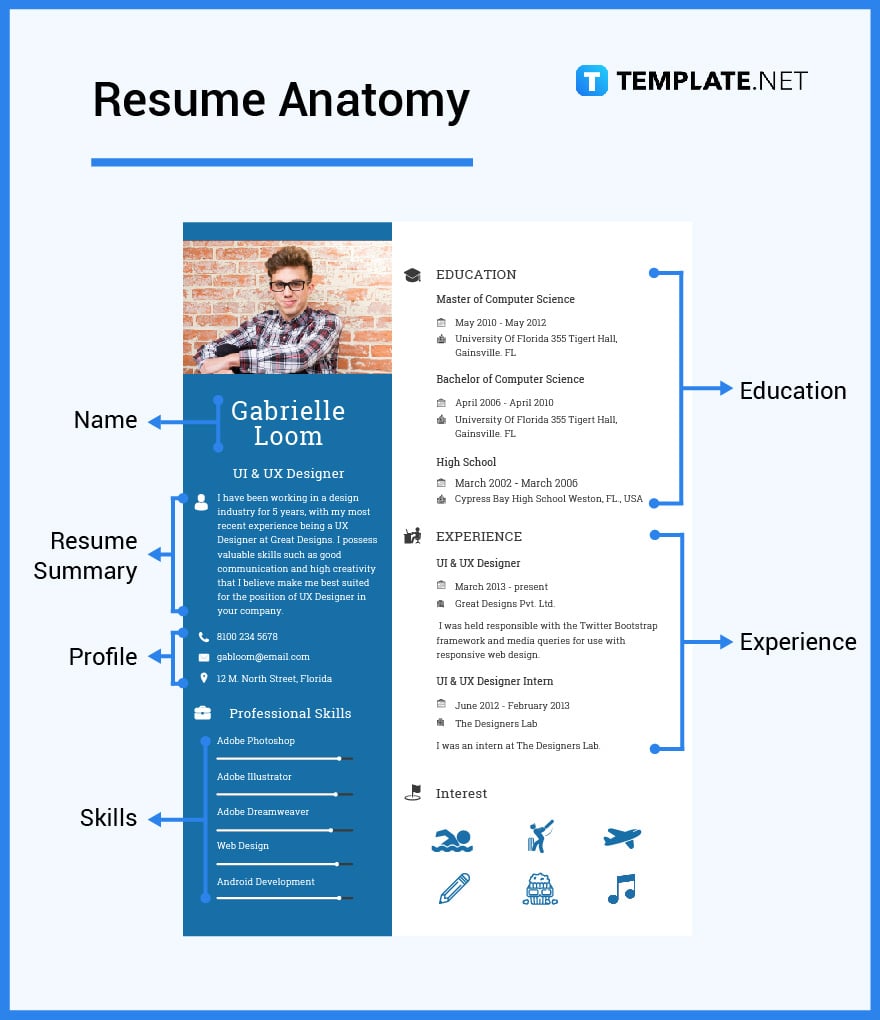
How to Design a Resume?
1. Choose a resume size
2. Decide the purpose of your resume
3. Select a resume template
4. Filter your content to the job you are applying
5. Organize and fact-check your content
You can also refer to these helpful articles on how to create resumes in other file formats:
- How to create a resume in Microsoft Word
- How to create a resume in Google Docs
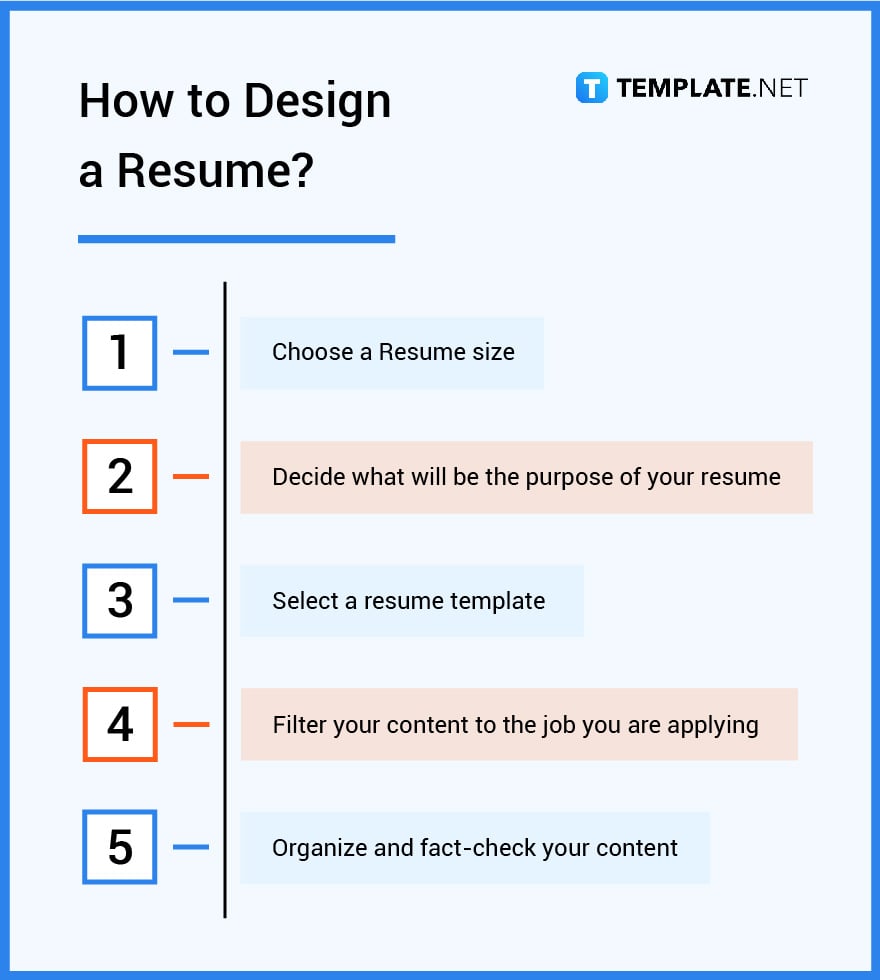
Resume vs. CV
A resume is a summarized and tailored version of your educational background, experiences, and skills.
A CV, or curriculum vitae, is a more comprehensive blueprint of your educational attainment, professional experiences, skills, and other career information.
What’s the Difference Between a Resume, Job Description, or Cover Letter
A resume is a one-page summarized document of your personal and professional experiences, skills, and qualifications.
A job description is a narrative that details the task, the job’s needed qualifications, responsibilities, and daily work.
A cover letter, sometimes called an application letter, is an accompanying narrative of your intent to apply, which states your personal notes, contains an abstract of you, and helps persuade employers to hire you.
Resume Sizes
It has been established in this article that resumes are important. These documents are used regardless of the industry and field and must observe the proper paper size according to your region. That is why different sizes are available for you to use:
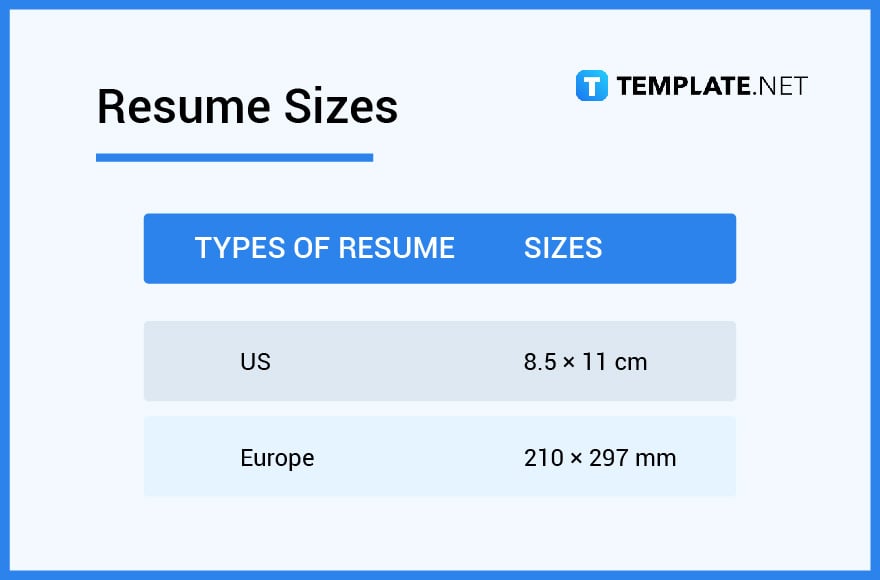
Resume Ideas & Examples
Creating your own resume can be quite overwhelming, but worry no more because we have a list of resume ideas and examples for you to use:
- Resume Ideas and Examples
- Job Resume Ideas and Examples
- Ideas for wedding Fresher examples
- Experienced Resume Ideas and Examples
- Internship Resume Ideas and Examples
- Entry-level Resume Ideas and Examples
- Teacher Resume Ideas and Examples
- Resume ideas and Examples for school
- Accountant Resume Ideas and Examples
- College Resume Ideas and Examples
FAQs
Why do you need a resume?
A resume helps you land a job or your dream position.
How should I structure my resume?
A resume must be structured according to essential things such as career objective, profile, educational background, skills, and professional experiences.
How can I write my own competitive federal resume?
A competitive resume must include important dates, adjectives to describe experiences, and summarized details.
Should my resume be one or two pages?
Ideally, resumes must be a one-page document containing your personal and professional experiences, educational attainment, and skills.
How long should my resume be?
Your resume must be one page with at least 475 to 600 words.
What is the right format for a resume?
There are different formats available in the market: chronological, functional, and combination.
What file format should I use to send my electronic resume?
MS Word and PDF are the two most common file formats for electronic resumes; the latter however is a more professional and safe file format.
What should be the name of the resume file?
HR professionals prefer that the applicant’s resume file contain the family name and/or first name initials plus family name.
Can I use a resume instead of a CV?
Oftentimes, these two are interchanged; to be safe, clarify with the employer if they need a resume or a CV.
How do you make a job resume?
A job resume must consist of a profile, educational background, job experience, skills, and other qualifications.
What mistakes should I try to avoid when writing my resume?
Don’t make your resume too wordy, don’t overdo the contents and instead put only the relevant ones, and don’t skip the photo.
More in Resume

